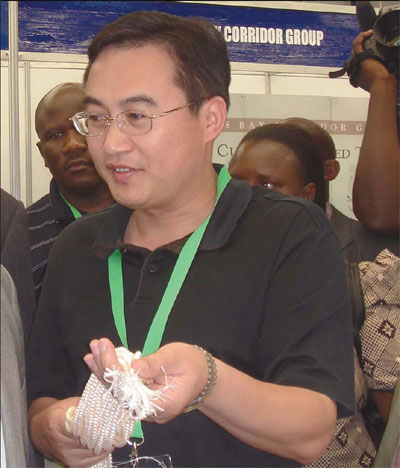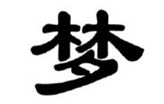Ancient secret finds a new market
Updated: 2011-09-23 09:10
By Yan Yiqi (China Daily)
|
|||||||||
|
Ruan Huajun says his company invests 6-8 percent of total sales revenue in R&D every year. Provided to China Daily |
Pearl powder pioneer embarks on mission to streamline industry
If Ruan Huajun has his way, an ancient Chinese beauty secret will soon be a best-seller in the markets of Europe and American.
The 45-year-old Ruan expects the shine and gloss that Fenix pearl powder has enjoyed in Serbia to rub off on other markets too.
But he admits that it is not an easy task as there are several market barriers for Chinese beauty products in Europe. Surmounting the quality challenge is often the toughest challenge for most companies as the European Union has stringent quality standards.
Ruan, however, says Fenix will not have major problems, as it has strict quality control measures.
One of the notable aspects of the strong economic growth of the past decade has been the increased desire of people to look and feel good. This has also contributed to a strong upsurge in sales of beauty and cosmetic products.
"The beauty product business was booming and we felt that it was an opportune time for a Chinese company to launch branded products in the West," Ruan says.
Fenix made its European debut in Serbia in 2006, and is now scouting for market opportunities in North and Central Europe.
Ivana Jazdic, a Serbian doctor who studied traditional Chinese medicine in Beijing for six years, says Fenix has world-class technologies for making pearl powder and its products are already popular in the Asian and South American markets.
"I do not have a strict blueprint for my company in Europe. My aim is to build Fenix as a strong Chinese brand and I expect the products will be trendsetters among Western consumers," says Ruan.
"Pearl powder was an ancient creation used by our ancestors to keep the skin radiant, smooth and youthful. Its effectiveness in medical treatment and as a beauty product has been proven by both ancient and modern medical experiments.
"In Western culture, people are not aware of the need to nurse the inner body for good external appearances. It will take time for them to accept our beauty culture and products."
There is no doubt that there is immense market potential for Chinese beauty products in the West, he says.
"The Herborist brand of beauty products from Shanghai Jawha has enjoyed considerable success in the Western markets in recent times and I am confident that Fenix can scale even higher peaks," says Ruan.
After obtaining his doctorate in economics at Shanghai's Fudan University, Ruan set up Fenix Pearl Biotech Co in 2003 in Zhuji, the capital of pearls. The facility is just a three-hour drive from Shanghai, where his family lives.
"Zhuji accounts for 73 percent of the world's total output of freshwater pearls, so this is the best place for developing the pearl powder industry. It is the closest place to the origin of pearls," says Ruan.
At the same time not all pearls are suitable for making pearl powder. Saltwater pearls are unusable as they are complex in nature, he says.
"Of the nearly 1,500 tons of pearls produced in Zhuji every year, only 20 to 30 percent can be processed as gems and accessories. The resultant pearls did not have any use until I hit upon the idea of using them for pearl powder.
"It is an effective way to expand the industrial chain, and I think the annual market potential is in excess of 300 billion yuan ($47 billion," he says.
Apart from beauty, pearl powder is also used in capsule form as a medical product.
Explaining the surge in the business, Ruan says that according to search engine Baidu.com, nearly 4.75 million people are now searching for pearl powder products compared with 3.23 million at the beginning of this year.
"Fenix has more than 200,000 regular consumers after it opened an online shop in 2004," says Ruan.
Fenix's flagship online store on Taobao.com, China's largest online shopping platform, has reported average daily sales of 13,000 products with the lowest priced product selling at around 35 yuan.
"Today Chinese women are more concerned about their appearance and their higher purchasing power helps them to aspire for beauty products with higher quality," he says.
Though the history of pearl powder is ancient, the technology of grinding pearls into powders without losing any nutritional abilities has often been a big issue.
Together with research institutes of top universities in China such as Tsinghua University, Zhejiang University and Nanjing University, Ruan's company has been spending considerable time on research and development. For Fenix, R&D expenses account for nearly 6 to 8 percent of total sales revenue every year.
In 2003, the company developed a machine to grind pearls into nanometer level. It was the first of its kind in the world and helps Fenix achieve 100 percent nutrition absorption. Since then the company has developed nine more patents.
"Zhejiang is one of the most developed areas in China for private enterprises, but many companies there have neglected R&D as it is an expensive process. But in the future, it will be technology and innovation that would be the key competencies as traditional advantages like low labor and material costs are gradually diminishing," says Ruan.
Last year, the pearl powder industry had a crisis after China Central Television unearthed a fake pearl powder racket. According to the channel most of the pearl powder in the market was made from mussel shells, and had nothing to do with pearls. As a pioneer in the pearl powder business Fenix was also affected by the scandal.
"The pearl powder industry in China can be described as chaotic. The market is filled with fake pearl powder and it is hard for the consumers to spot the differences," Ruan says with a sigh.
Since the scandal broke, Ruan has been looking to evolve ways for effective industry regulation. "The company can only survive when the industry is alive and developing," he says.
Ruan admits that the lack of a national standard to verify pearl powder is a major problem. Currently, Fenix is working with quality testing organizations, local governments and companies to evolve a standard. Also in the works is an industrial association for pearl powder.
"Regulation of the industry needs a lot of self-discipline and active participation from all participants," Ruan says.
(China Daily 09/23/2011 page15)











